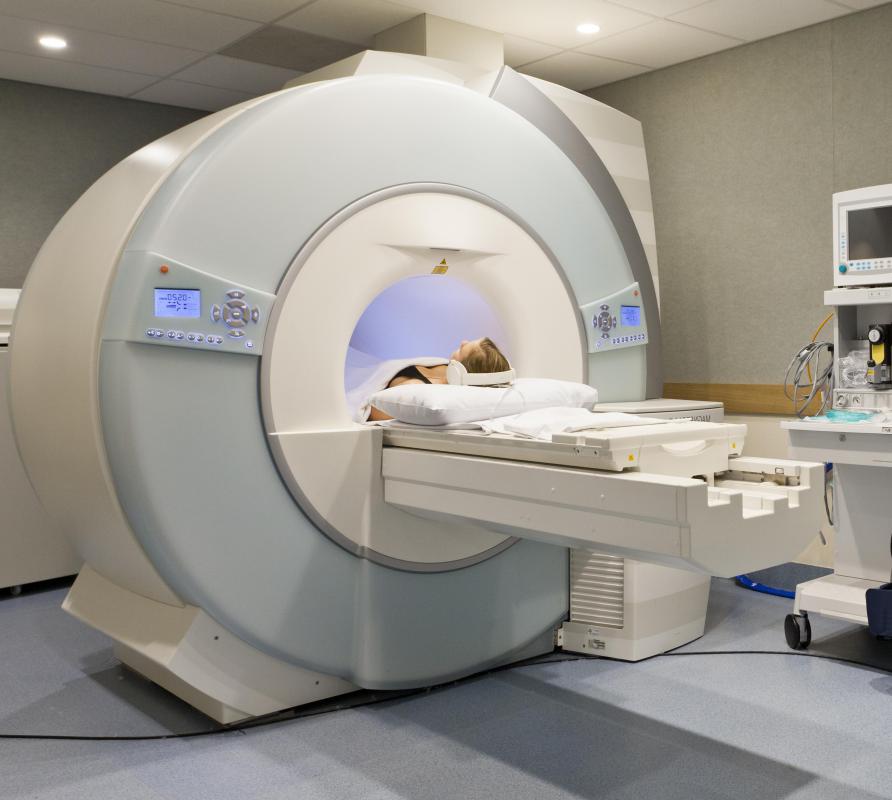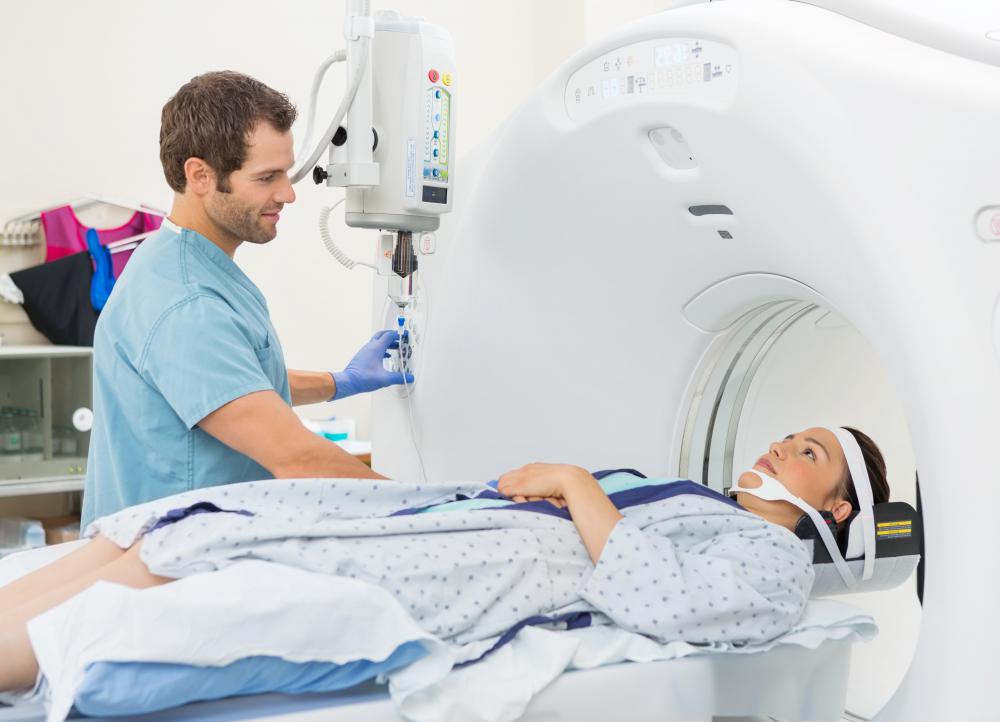At TheHealthBoard, we're committed to delivering accurate, trustworthy information. Our expert-authored content is rigorously fact-checked and sourced from credible authorities. Discover how we uphold the highest standards in providing you with reliable knowledge.
What is an Adrenal Nodule?
An adrenal nodule is a mass that forms from unchecked cellular reproduction within the adrenal gland. Usually comprised of neuroendocrine cells, it is generally benign in its composition. Often, symptomatic individuals possess a genetic predisposition for the development of these nodules. When treatment is warranted, the approach may range from the administration of medication to gland excision.
Inadvertently discovered adrenal masses are frequently referred to as adrenal incidentalomas. In such cases, routine or diagnostic imaging tests reveal the nodule's presence. Whether the mass is discovered by chance or the individual is symptomatic, a battery of laboratory and diagnostic tests may be performed to confirm a diagnosis. Generally, a blood panel and imaging tests, including a computerized tomography (CT) scan, are conducted to evaluate hormone levels and determine the exact location and presentation of the adrenal nodule. Large masses or those with an anomalous shape generally necessitate additional testing to determine whether the growth is malignant, or cancerous.

There is no known cause for adrenal nodule development, a condition known as pheochromocytoma. The adrenal glands, each paired with its respective kidney, are responsible for the development, distribution, and regulation of adrenal-based hormones, known as catecholamines. Nodule development generally disrupts adrenal processes, resulting in unregulated hormone production and release that compromises blood pressure and cardiovascular function.

In some cases, individuals with certain genetic conditions may possess a predisposition for adrenal nodule development. Though adrenal nodules are generally considered an atypical occurrence, it is possible for the condition to run in families. Additionally, certain neoplastic conditions, such as neurofibromatosis, may contribute to adrenal mass formation.

When adrenal hormones are released unnecessarily or excessively, acute hypertension and arrhythmias can develop. Some individuals may experience varying adrenal symptoms that may include persistent headaches, behavioral changes, and abdominal discomfort. Depending on the severity of abdominal discomfort, one’s appetite may lessen, resulting in unintended weight loss. If signs of hypertension or severe arrhythmia are ignored, the risk for complication increases significantly and may result in impaired cognition, widespread organ failure, and death.

Since prolonged, unnecessary adrenergic release contributes to hypertension, most medications prescribed for an adrenal nodule work to release vessel constriction and ease stress placed on the heart. It is not uncommon for hypertension to precipitate arrhythmia development; therefore, once blood pressure is stabilized medication may be used over the long term to normalize heart rhythm. An adrenal nodule that matures rapidly generally requires the excision of the entire adrenal gland.
AS FEATURED ON:
AS FEATURED ON:
















Discussion Comments
Should I be worried and why wouldn't they tell me right away?
I have a 2.2cm. nodule they found while removing my gallbladder a few months ago, and they never told me about it. The only reason I know is because I asked for a copy of my full medical records and found it there.
@Telsyst - If you know of this in your family you should probably have it in your medical records. As far as worrying about it, it is very uncommon. Testing for it should only be done when there is a suspicion present.
It's always best to talk with your doctor to ease any question you have.
This sounds like a mysterious type of tumor. If this is something that I am predisposed of in my genetic code, I wonder if it would be best to tell my doctor about it.
It isn't very common, about 1,000 cases of it a year in the United States a year.
Post your comments